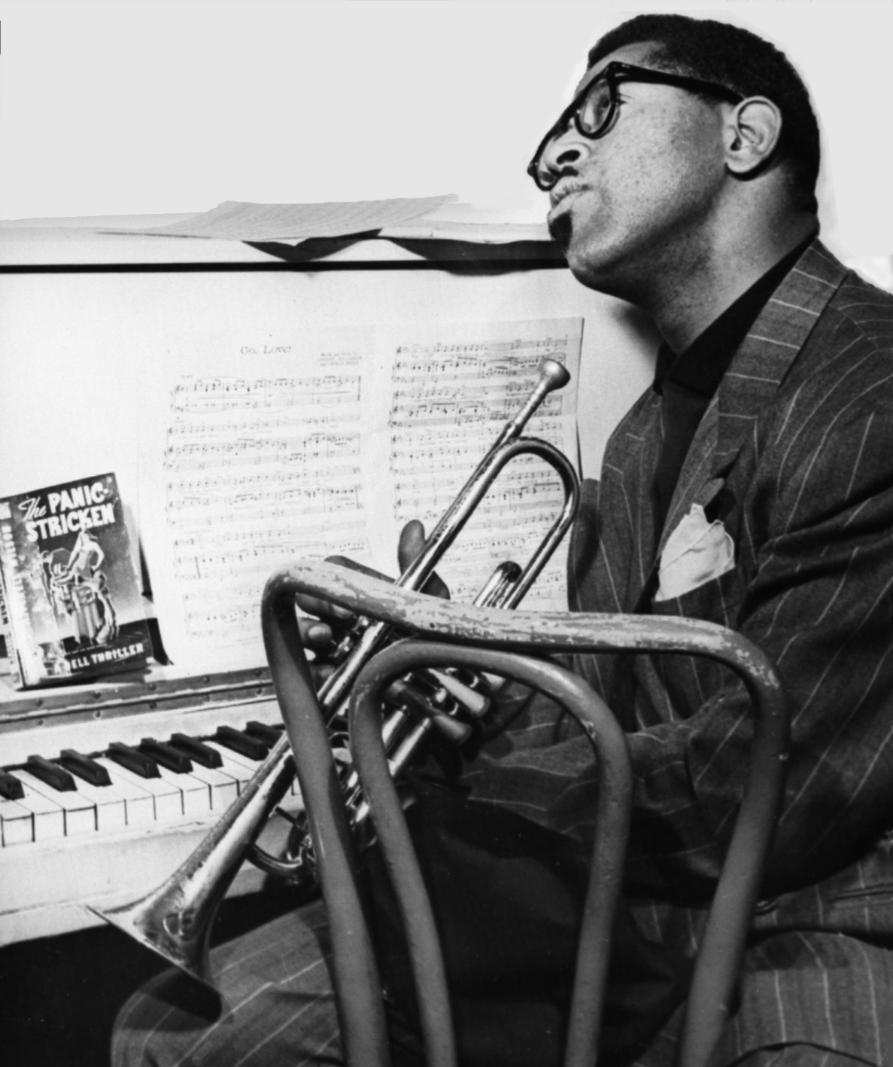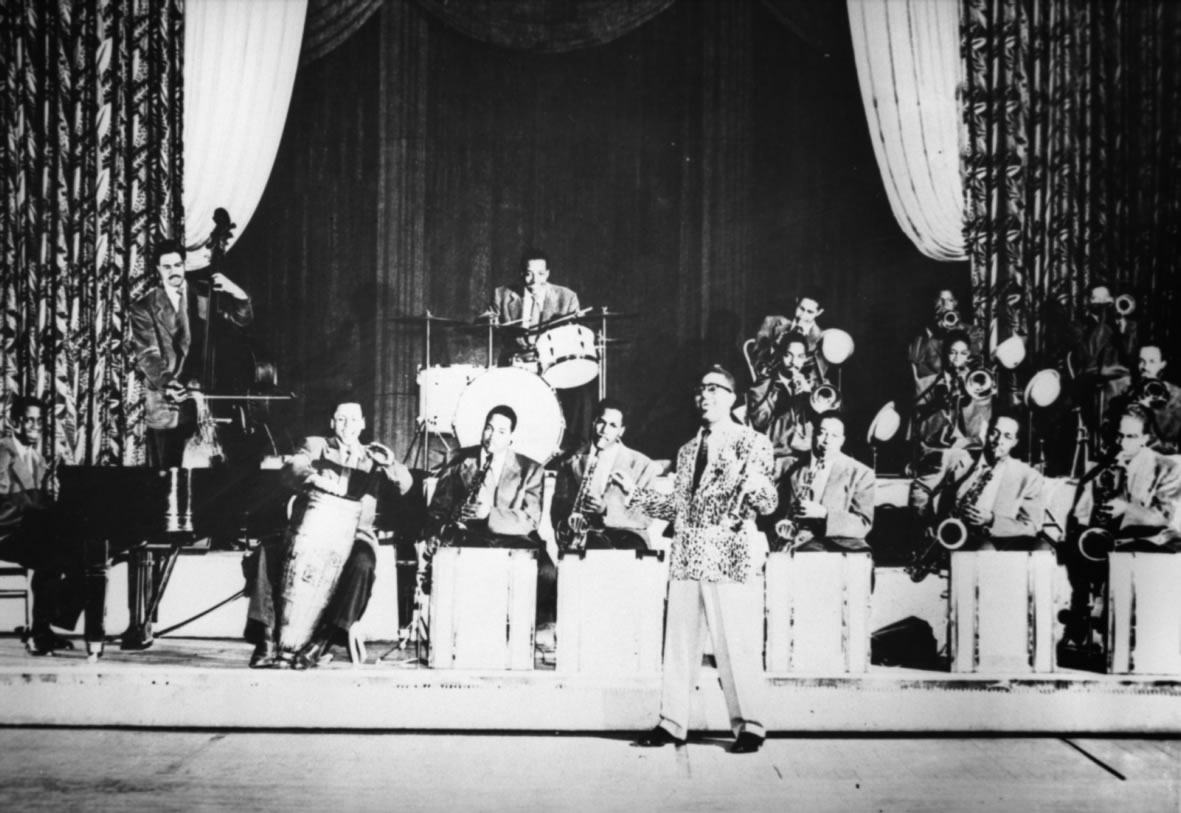Dizzy Gillespie - A Night In Tunisia
DIZZY GILLESPIE AND OTHER PIONEERS OF BEBOP
The suffering face of jazz is one of the Icons of American cultural history, the sweating artist, sending up acoustic smoke signals from the basement floor, the block protester, accusing the whites of art theft, and for whom the theory of acculturation -the cultural changes bored on the cultural contacts by which jazz came into being - nothing but a scientific safeguard of spiritual theft. But there is also clown's mask in jazz, the 'minstrel man', who blackens himself and with humorous gesturing, offers the public that which it deserves: the parody of black eccentricity, jazz as a comical turn In this respect, Dizzy Gillespie always displayed a certain schizophrenic. He was a rebellious entertainer who made even the craziest music successful. Gillespie was like his colleagues of the 'forties', eccentric in appearance and conduct but never arrogant. And he didn't brandish his social commitment like a benner 'Artists are always in the forefront of social change. But we didn't mount the stage to give speeches or to say 'let's play 8 beat social protest! Amongst the bebop players Gillespie was probably the most disciplined, the one who made the new way of playing style, who could not only play the most complex improvisations, but could also create original and virtuoso arrangements for big bands. And using elements of South-American and African music from Bosse Nova and Cuban rhythms, which he incorporated into his arrangements, he laid the foundations of the first great vogue in Latin-jazz and Afro-jazz.
'He's the other half of my heartbeat'
(Charlie Parker)


Dizzy Gillespie


Bud Powell, Charles Mingus, Max roach, Dizzy Gillespie, Charlie Parker

